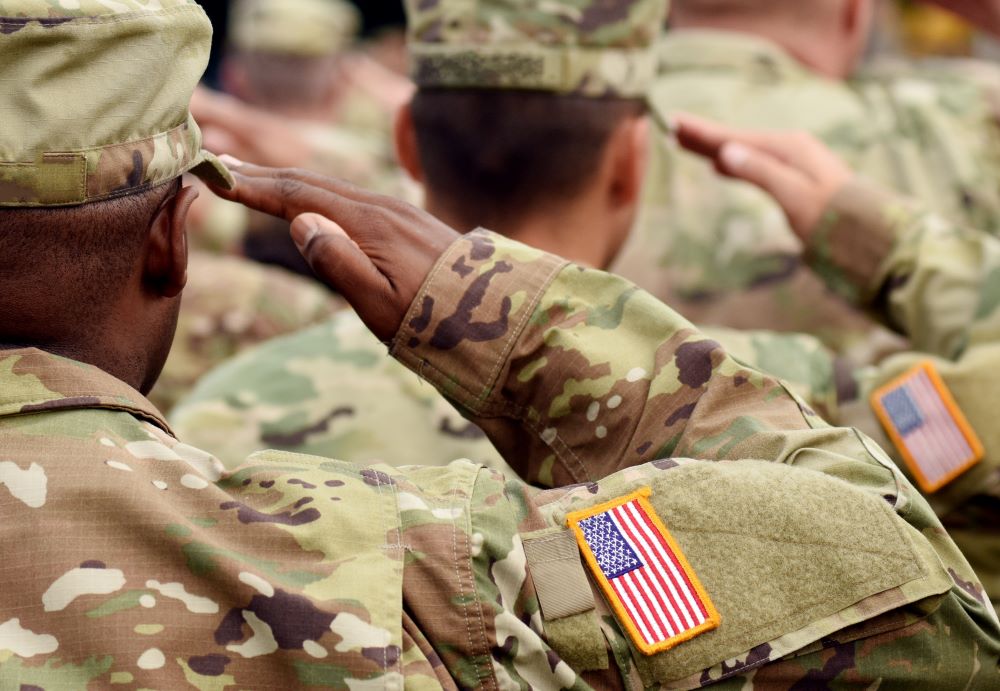When discussing higher education and the military, to many it would intuitively seem that these two types of organizations are diametrically opposed in parameters such as philosophy, culture, structure, and goals of its members. In fact, in the past 50 years on both a local and global level, these two entities have culturally, and at times physically, clashed in an attempt to change behaviors and decisions.
Despite inherent differences, the military considers internal or external higher education as a required building block of its leadership, whereas in colleges and universities, there is a reluctance to adopt military-style leadership. Here are the benefits of military-style leadership in higher education and more importantly, describe how to be a higher education leader and earn trust in your leadership.
Military-Style Leadership Fosters Teamwork
While in higher education most students generally strive for individual self-improvement and improved career prospects, in the military, most fighting soldiers can only achieve their individual and common objectives by working as a cohesive and synchronized team. Military-style leadership is built on the understanding that ultimately, soldiers in war must work together and follow their commanders, even when they possibly face the direst consequences.
Higher education leadership can potentially benefit from military style leadership in numerous venues where there are group-based activities, such as:
- Large-scale projects
- Environments of high stakes and complexity, such as cutting-edge research
- Competitive athletic programs
- Decision making settings in upper management and committees where a collaborative long-term effort is needed
One school of thought (see for example Israeli General Ori Orr, Ret.) claims that soldiers will follow their leader into battle for three main reasons:
- Education, or who the individual soldier is in her or his core. What they have learned from the environment that shaped them into self-respecting, brave, selfless or other traits that make and define who they are.
- Brotherhood, meaning comradery, or the unique bond between the fighter and the unit surrounding her or him that brings them together.
- Trust in leadership, meaning the faith, confidence, and respect people have that is greater than the position that person holds.
Higher ed primarily and the military are transformative in nature to the people who attend those institutions but in totally different ways. Whereas colleges and universities focus on the teaching of knowledge and skills, most militaries understand that addressing all three aforementioned factors is imperative. For most militaries, leadership is the one aspect they can actively and exclusively create and shape.
The building blocks, or the “manual” of military-style leadership consists of the following:
- Devotion – top-down loyalty to your team means leadership by example, constant support of team members and to never blame failure on another team member. Believe in your team, be willing to sacrifice for your team.
- Create synergy – explain to your team why what they do is important and provide clarity of the mission at hand. Unite opposites to a clear goal.
- Proactive care and ownership – every morning ask yourself what you can do to contribute to the team and to the assignment. Do not wait for a team member to ask you for help. Synergy starts from the bottom; take care of your team and your team will take care of you and the mission.
- Self-criticize – practice on-going self-improvement. Do not negatively criticize yourself but rather self-criticize in a constructive way. Think of the mistakes you made and what can be learned and improved from them.
- Be obsessively organized – use the organization methodology that works for you and make it a foundation to your actions. One of my old mentors half-jokingly repeated the mantra “after action, satisfaction,” and I have used it ever since.
- Pay attention to detail – attention to detail is a core value that allows the team to be efficient, manage time, and help one another. However, incorporate redundancy into your plans.
- You always need to learn – you do not know everything. A good team leader knows that there are always new things to learn and ways to self-improve. Those who commit to learning and self-development advance the team and contribute to its success.
- Never be content – don’t stop striving for improvement, and always push yourself out of your comfort zone. Every new challenge expands your team’s abilities and confidence. Strive for optimum performance.
The easy to remember and the most basic takeaway that encapsulates the essence of military-style leadership is to practice consistent and unwavering loyalty to your profession and to the people you supervise. In other words, do not be loyal only to your boss, but also to those who work for you, and always remain professional. By following this logic at its most basic form, practitioners are most likely to generate the type of leadership and trust they need to accomplish the tasks they were entrusted to accomplish with their team.
Leaders in Higher Ed and the Military Should Share Promising Practices
Despite commonly held perceptions, higher education and the military have a symbiotic relationship where the two entities can benefit from the knowledge and experience its members transfer from one organization to the other. While the military actively integrates higher education and the benefits an educated workforce brings, institutions of higher education in many cases are reluctant to adopt tried and proven military-style leadership philosophy and methodologies.
Hopefully, the adaptation of most or all of the aforementioned building blocks will simplify the why and the how of the military style of leadership in higher education and deliver the benefits many organizations want.
Oren Alter oversees crisis management for 30 campuses in the Southeast United States. He is a security expert with over 30 years of experience, including the Israeli Special Forces, service in the Israeli Intelligence, Corporate Security for an international multi-billion-dollar global company and Higher Education Crisis management and Emergency response.







